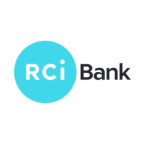Best Instant Access Rates
Best Instant Access Rates In July 2023
With interest rates on the rise in the UK, the best instant access rates are changing every week with new products coming to the market.
Here is a quick round-up of the best instant access savings accounts rates on the market:
- Chip Savings Instant Access Saver
- Interest Rate: 4.26% AER
- Minimum Deposit: £1
- Features: High rate instant access account. Interest paid monthly. Deposit up to £250,000.
- Requirements: Must be aged 18 or older and UK resident. FSCS protected.
- Mobile app only.
- Yorkshire Building Society
- Interest Rate: 4.25% AER
- Minimum Deposit: £1
- Features: High interest rate instant access account. Interest paid annually. Deposit up to £500,000.
- Requirements: Must be aged 16 or older and UK resident. Open in single or joint names. FSCS protected.
- Investec Instant Access Rate
- Interest Rate: 4.20% AER
- Minimum Deposit: £5,000
- Features: High interest instant access savings account. Interest paid at maturity. Deposit up to £250,000.
- Requirements: Apply in minutes. Must be aged 18 or older. Have a UK residential address. Single account option only. FSCS protected.
- RCI Bank Instant Access Savings
- Interest Rate: 4.20% AER
- Minimum Deposit: £100
- Features: Unlimited payments and withdrawals. Apply online. Deposit up to £1m. UK based support.
- Requirements: Must be aged 18 or older and resident in the UK. FSCS protected.
- Leeds Building Society Instant Access Savings Accounts
- Interest Rate: 4.20% AER
- Minimum Deposit: £1,000
- Features: Interest paid annually. Unlimited deposits and withdrawals. Open and manage online.
And here’s our comparison table:
Our Top 5 Deals |
||
|---|---|---|
| 4.26% AER Deposit from £1 Features: High rate instant access account. Interest paid monthly. Deposit up to £250,000 | Apply » | |
Must be aged 18 or older and UK resident. FSCS protected. Mobile app only |
||
| 4.25% AER Deposit from £1 Features: High interest rate instant access account. Interest paid annually. Deposit up to £500,000 | Apply » | |
Must be aged 16 or older and UK resident. Open in single or joint names. FSCS protected. |
||
| 4.20% AER Deposit from £5,000 Features: High interest instant access savings account. Interest paid at maturity. Deposit up to £250,000. Apply in minutes | Apply » | |
Apply in minutes. Must be aged 18 or older. Have a UK residential address. Single account option only. FSCS protected. |
||
| 4.20% AER Deposit from £100 Features: Unlimited payments and withdrawals. Apply online. Deposit up to £1m. UK based support | Apply » | |
Must be aged 18 or older and resident in the UK. FSCS protected. |
||
| 4.20% AER Deposit from £1,000 Features: Interest paid annually. Unlimited deposits and withdrawals. Open and manage online | Apply » | |
Must be aged 18 or older and UK resident. FSCS protected. |
||
Key takeaways
- Interest rates for savings accounts in the UK currently range from 3.50% to 4.40% AER.
- Some accounts offer interest paid monthly, while others pay annually.
- Unlimited payments and withdrawals are available for most instant-access accounts.
- Accounts are FSCS protected, offering up to £85,000 deposit protection.
- Some accounts have tiered interest rates based on the deposit amount.
- The Bank of England base rate is much higher than it was 18 months ago, so savings rates are much higher.
- We’ve given consideration to the bonus rates and potential rate reductions after the introductory period.
- Other factors to consider: minimum monthly deposit, fees, money management tools, multiple payment options.
- As well as interest rate stability, bonus periods, and maximizing interest on savings.
What is an Instant Access Savings Account?
An instant access savings account is like a big, safe piggy bank managed by a bank or a building society.
Here’s what you should know:
- Your Money Is Safe: It’s not like keeping money under your mattress! Banks and building societies have to follow strict rules to keep your money safe.
- Easy Access: It’s called an ‘instant access’ account because you can put in (deposit) or take out (withdraw) money anytime you like, without waiting. It’s as easy as taking a book off the shelf and putting it back when you’re done reading.
- Earn More Money: The best part about these accounts is they make your money grow! They do this by adding interest. Think of interest like a reward the bank gives you for keeping your money with them. The longer your money stays in the bank, the more interest you earn. The amount of interest you earn is usually given as a percentage, called the AER.
For example, if you have £10,000 in an account with an AER of 3%, after one year, you’ll earn £300 in interest. So, you’ll have £10,300 in total! - No Fees: Most of the time, there are no charges for putting money in or taking it out. That means you won’t lose any of your savings when you decide to use them.
- Setting Up Is Easy: You can usually open an account with a small amount, like £1. Some banks let you open an account online, so you don’t even have to leave your house!
Remember, it’s always a good idea to save. And with an instant access savings account, you can save and still be able to use your money when you need it. Plus, you get rewarded with interest, making your savings grow faster.
How to Choose the Best Instant Access Rates Account
Choosing the right instant-access savings account can be compared to choosing the best mobile phone plan.
Different banks offer different perks, and the choice depends on what suits your needs the most. Here are a few points to consider:
Interest Rate (AER)
This is the return you earn on your money. A higher AER implies your savings will grow at a quicker pace. So, shop around for accounts that offer competitive interest rates, much like you’d look for a phone plan with the best data allowance.
Minimum Deposit
Some accounts require you to deposit a minimum amount to open them. If an account requires a £1,000 minimum deposit, you’ll need to have £1,000 ready to open it. It’s similar to the upfront cost you might have when getting a new phone. Choose an account with a minimum deposit requirement that matches your current financial situation.
Access to Funds
Different accounts offer varying levels of access to your funds. Some give you the ability to withdraw your money instantly, while others might require a notice period. Make sure to pick one that matches your needs for flexibility, similar to how you’d choose a mobile plan that gives you the right amount of call time.
Online Access
Most banks offer online access to your account. This feature is as important as having internet access on your phone. It allows you to manage your money anywhere, anytime.
Reputation and Safety
Just like you’d want a reliable mobile network, it’s important to choose a reputable bank or building society. Check whether your savings will be protected by the Financial Services Compensation Scheme (FSCS), which covers your savings up to £85,000.
Customer Service
Good customer service is as vital in banking as it is in any service industry. Look for banks with positive reviews and responsive customer service teams.
While you’re here: read our guide to the best 1 year fixed bonds currently on the market.
Instant Access Rates vs Other Savings Accounts
Let’s stick with the mobile phone plan analogy.
Instant Access Savings Accounts are like pay-as-you-go mobile plans.
You have the flexibility to deposit and withdraw your money whenever you want without any penalties, similar to how you can top-up or use your pay-as-you-go phone credit whenever you need it.
The interest rate (AER) is often variable, meaning the bank can change it whenever they want, just as a mobile operator can change the rates for calls, texts, or data.
Pros:
- High flexibility: Withdraw or deposit at any time.
No commitment: No penalties for withdrawing your money early.
Cons:
- Lower interest rates: The return on your savings (interest) is often lower compared to other types of savings accounts.
- Variable rate: The interest rate can change over time, which can be a downside if the rate decreases.
Fixed Rate Savings Accounts, on the other hand, are like contract mobile plans. You commit to leaving your money in the account for a set period, like 1, 2, or 5 years (the term). In return, you get a guaranteed fixed interest rate, just like how you pay a set amount every month on a phone contract and get a certain allowance of calls, texts, and data.
Pros:
- Higher interest rates: Banks usually offer better interest rates for these accounts since you’re agreeing to leave your money with them for a certain period.
- Fixed rate: The rate is set for the term, so you know exactly how much your savings will grow.
Cons:
- No access: You typically can’t access your money during the term without paying a penalty, similar to how you’d pay fees for breaking your phone contract early.
- Inflation risk: If inflation rises significantly, the purchasing power of your fixed interest earnings could decrease.
The best choice for you depends on your personal needs. If you think you might need your savings at short notice, an instant access account would be more suitable.
But if you’re happy to lock away your money for a set period in return for a higher interest rate, a fixed savings account might be a better choice.
Always make sure to do your research and choose the best account for your personal circumstances!
FAQs
What is the difference between an ISA and instant access savings account?
An ISA, or Individual Savings Account, is a type of savings account available in the UK that provides tax benefits. The interest you earn from money in an ISA is tax-free up to an annual limit, which was £20,000 as of the 2021/2022 tax year. An ISA can be instant access or have a fixed term.
An instant access savings account, on the other hand, allows you to deposit and withdraw funds whenever you want without notice. The interest from an instant access savings account might be subject to tax, depending on your personal allowance and rate of tax. So, while an ISA and an instant access savings account can be quite similar in terms of access to your funds, the key difference is the tax treatment of the interest you earn.
How much money should I have in instant access savings?
This really depends on your personal financial situation and goals. However, a common rule of thumb is to have three to six months’ worth of living expenses saved in an easily accessible account, like an instant access savings account, as an emergency fund. This ensures that you have enough funds to cover any unexpected costs or situations, such as sudden job loss, medical emergencies, or urgent home repairs.
What does instant access mean?
‘Instant access’ means that you can withdraw your money whenever you want without having to give any notice to the bank or building society. It’s similar to having money in a current account where you can access your funds at any time through cash withdrawals, electronic transfers, or debit card payments. Instant access accounts are designed for flexibility, making them a good option for emergency savings that you may need to access on short notice.
What are the disadvantages of instant access savings accounts?
While instant access savings accounts offer flexibility, they do come with a few downsides:
Lower Interest Rates: They typically offer lower interest rates compared to other types of savings accounts, like fixed-rate accounts, where you agree to leave your money in for a set period of time.
Rate Variability: The interest rate is often variable, meaning it can go down as well as up. If you have a fixed-rate savings account, your rate is guaranteed for the term.
Inflation Risk: If the interest rate is lower than the rate of inflation, the real value of your savings could decrease over time.
Over-Withdrawal Temptation: Because you can access your money at any time, it can be tempting to dip into your savings for non-essential spending, making it harder to grow your savings over time.
Tags










